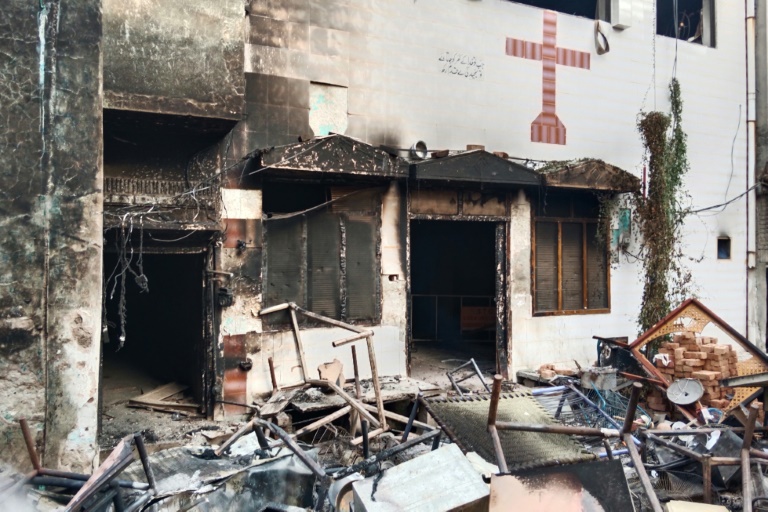In the wake of the recent Jaranwala incident, where violent mobs targeted the Christian community over unproven blasphemy allegations, it becomes imperative to delve deeper into the root causes of extremism in Pakistan. This disturbing episode serves as a grim reminder of the escalating religious violence that is tearing at the very fabric of the nation. To comprehend the factors contributing to this alarming trend, we must examine the laws, policies, and socio-economic dynamics that have fueled religious extremism, propelling Pakistan towards a perilous path.
One critical aspect lies in the laws and policies of Pakistan that systematically discriminate against non-Muslims. The blasphemy law, introduced during General Zia-ul-Haq’s regime, made blasphemy punishable by death. While only 14 blasphemy incidents were reported between 1927 and 1986, this number surged dramatically after the law’s amendment. Since 1987, over 2,120 individuals have been accused of blasphemy, with an increasing number of cases reported each year.
Although no death sentences have been carried out under the law, mere allegations can incite mobs to violence, leading to horrific incidents like the one in Jaranwala. This law is often exploited to settle personal scores and rivalries, further fueling social unrest.
A more insidious issue is the impunity enjoyed by perpetrators of religiously motivated violence. Extremist groups, such as the Tehreek-i-Labbaik Pakistan (TLP), have been emboldened by state support, which is sometimes leveraged for political ends. This encouragement allows these groups to act without fear of being stopped, caught, or punished for their violent actions.
When crowds believe they won’t face consequences for their actions, they are more likely to indulge in extremist violence against religious minorities. The recent attack on churches and Christian homes in Jaranwala is a stark example of this trend, underscoring the state’s failure to protect marginalized minority communities.
Religiously motivated extremism is not solely a matter of faith; it is deeply intertwined with socio-economic disparities and deprivations. The urban underclass, particularly the youth, is increasingly drawn towards religious extremist ideologies as a response to their economic struggles.
In towns like Jaranwala, where opportunities for education, healthcare, and employment are scarce, and social networks that encourage interaction with people from different backgrounds are diminishing, religion becomes a refuge. Rising economic disparities and dwindling opportunities for improvement push a significant portion of the urban underclass towards intolerant, sectarian worldviews.
Violence against minorities serves as a manifestation of the socio-economic deprivations faced by a substantial portion of Pakistan’s population, compelling them to embrace religious extremism as a solution to their life problems.
The Jaranwala incident is not an isolated occurrence but rather a symptom of a larger problem rooted in laws, policies, impunity, and socio-economic challenges. To combat extremism effectively, Pakistan must address these multifaceted issues, promoting tolerance, inclusivity, and socio-economic development. The path to a more harmonious and prosperous Pakistan requires a concerted effort to dismantle the factors breeding extremism and violence against minorities.
Aqeel Ahmad
- This author does not have any more posts.







